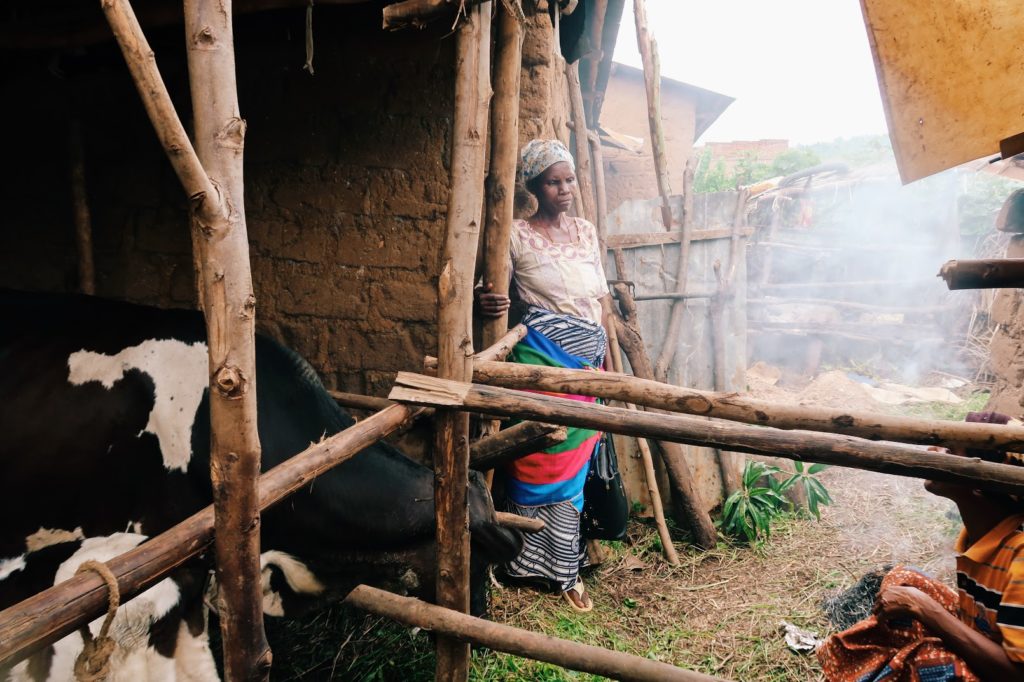by Camryn Jones
Yahaira and Petronie live in rural Burundi. Both are very familiar with extreme poverty, as nearly two-thirds of Burundi’s population lives below the poverty threshold.
Both of these women are mothers. Petronie has nine children—a large family even by Burundian norms, where large families are common. “My children scarcely ate one meal a day,” she explains.
Yahaira’s family life has also been marked by hardship and severe tragedy. Decades ago, she lost seven out of her eleven children. “In the wake of these overwhelming catastrophes, we were imprisoned in a ghetto of despair,” she describes.
These two women, and millions of others in similar circumstances, represent the frontline of climate change.
The role of women in agriculture places them at the heart of climate impact
On the surface, it may not look like climate change is a women’s empowerment issue. Many may sense the importance of these two causes without making the connection between them. After all, doesn’t climate change impact everyone?
While climate affects the entire planet, and thus all people, women and young girls in the world's most disadvantaged areas experience the greatest environmental, economic, and personal impacts. Why? In short, they experience most of the immediate consequences of volatile weather, economic exclusion, and even potential violence that can escalate during periods of instability.
The connection begins on the farm.
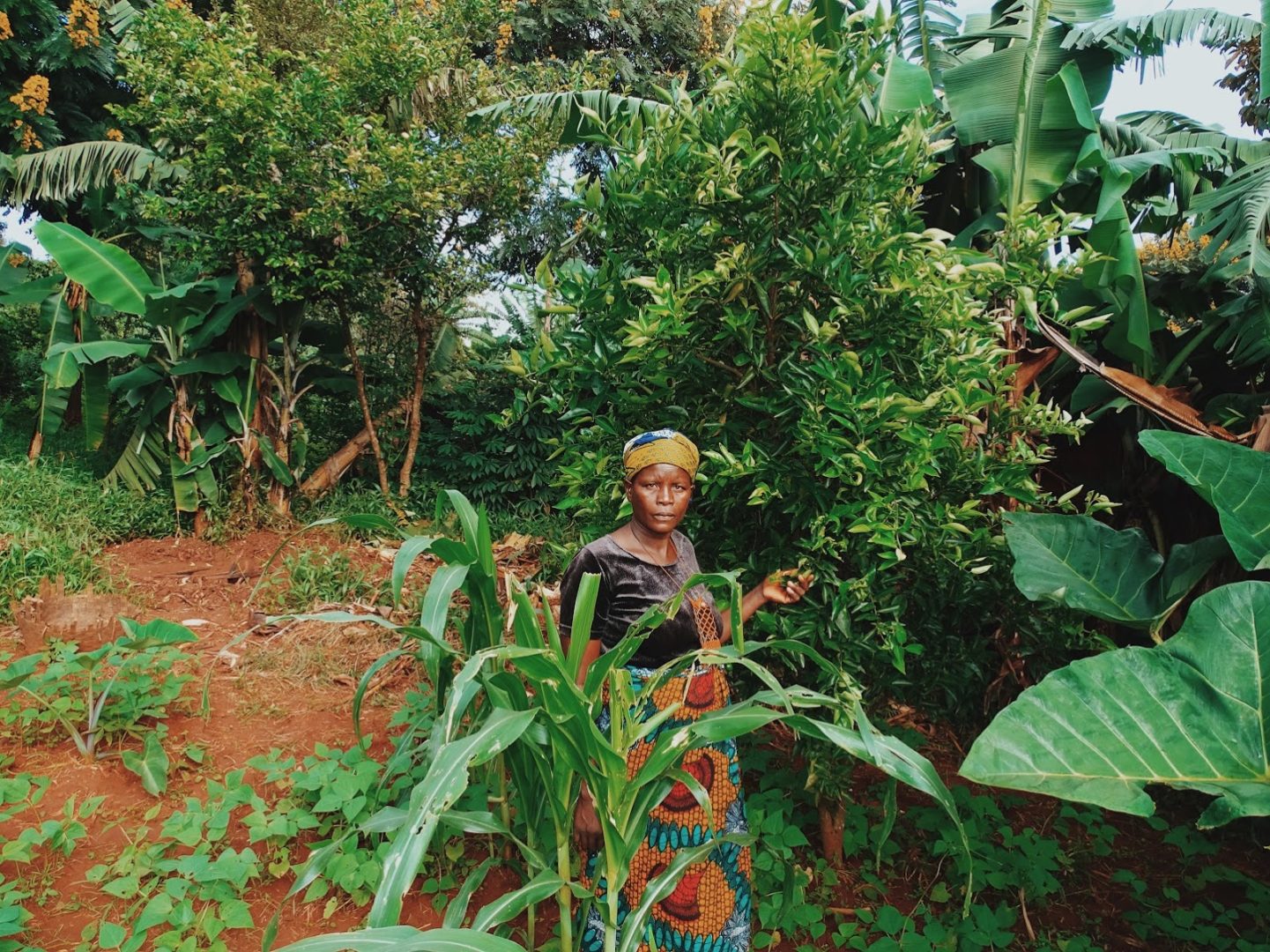
Over 70% of Burundians rely on agriculture for their food and income. Like Burundi, farming is the main source of livelihood for people living in most countries in Sub-Saharan Africa, South Asia, and the lower-income countries of Latin America and Southeast Asia. In all of these countries, women do the majority of agricultural work.
According to the Food and Agriculture Organization of the United Nations (FAO), in low-income countries women grow 60-80% of food crops.
Women in low-income countries are often the “resource managers” for their families and communities. This means that women are responsible for providing and managing all of their food and resources. They are responsible for growing and harvesting crops, securing fuel, caring for livestock, managing agricultural plots, and often traveling long distances to collect water.
These responsibilities are only made more difficult by gender inequality. There is strong evidence from Yale University, researchers Peterman, Quisumbing, and Behrman (2010) and the FAO that shows that the productivity of female farmers is equal to their male counterparts, given access to the same resources. But in many cases, women do not have access to the same technologies, credit, land, and other resources
As the primary caregivers for children, the elderly, and the ill within their families, women are the cornerstone of their communities.
Researcher Tricia Glazbrook found that women in Southern Africa are the sole caregivers for up to 17 people in a single home. They are relied on for cooking, collecting water, tending to family members' health, and taking care of livestock.
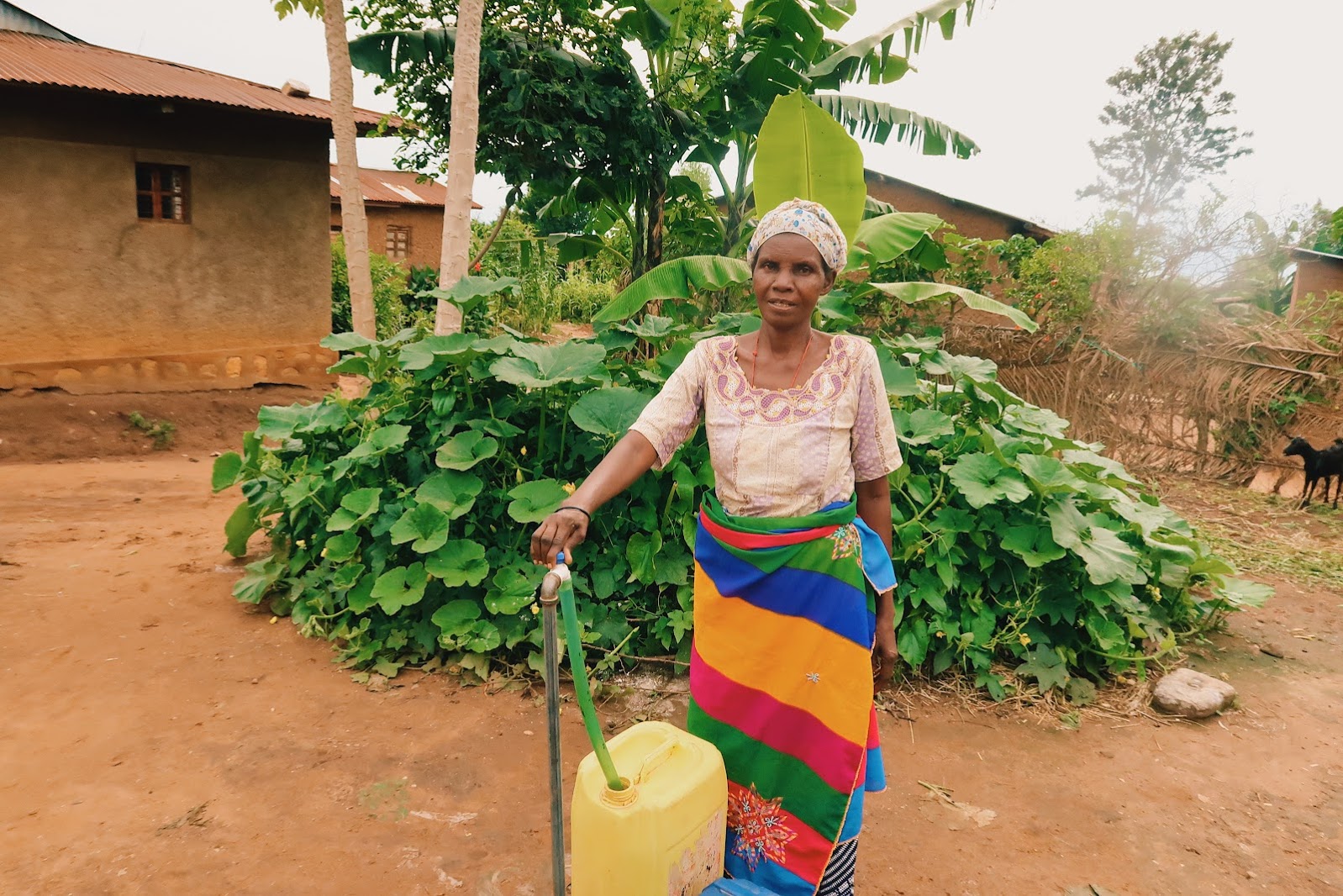
The Power to Make a Difference
Because of their heavy involvement in these responsibilities, women acquire a vast knowledge regarding biodiversity, natural medicines, nutritional balance, and crop rotation systems. Women are the essential caregivers, and they directly experience how deeply climate impacts the health and quality of life for all people. With this strong understanding of the impacts of climate change on their farms and communities, women also have the wisdom needed to fight against the threat.
Climate change is not a one-dimensional issue. It is a condition that intensifies a number of long-standing inequalities, exclusions, and hardships.
When Petronie saw that she could only feed her children once a day, she came to understand that the farming techniques she practiced for years and inherited from previous generations were producing less and less in light of changing environmental conditions.
Sadly, with rising temperatures and increasingly irregular rainfall, it is becoming harder and harder for our world's growing population to feed itself. In recent years, there has been a severe increase in droughts. Parts of the United States and many regions in the Middle East, Asia, and Africa have been impacted by higher air temperatures, drier air, and a disruption of historical rain patterns.
Farmers in Burundi notice irregular rainfall. Their crops are damaged by long periods of drought. Soil becomes exposed by lack of crops, and then flooding erodes the topsoil, especially on the sloped land farmed by many partnering communities. “Surely our production dwindled because of the increasing infertility of the soil,” reflected Yahaira.
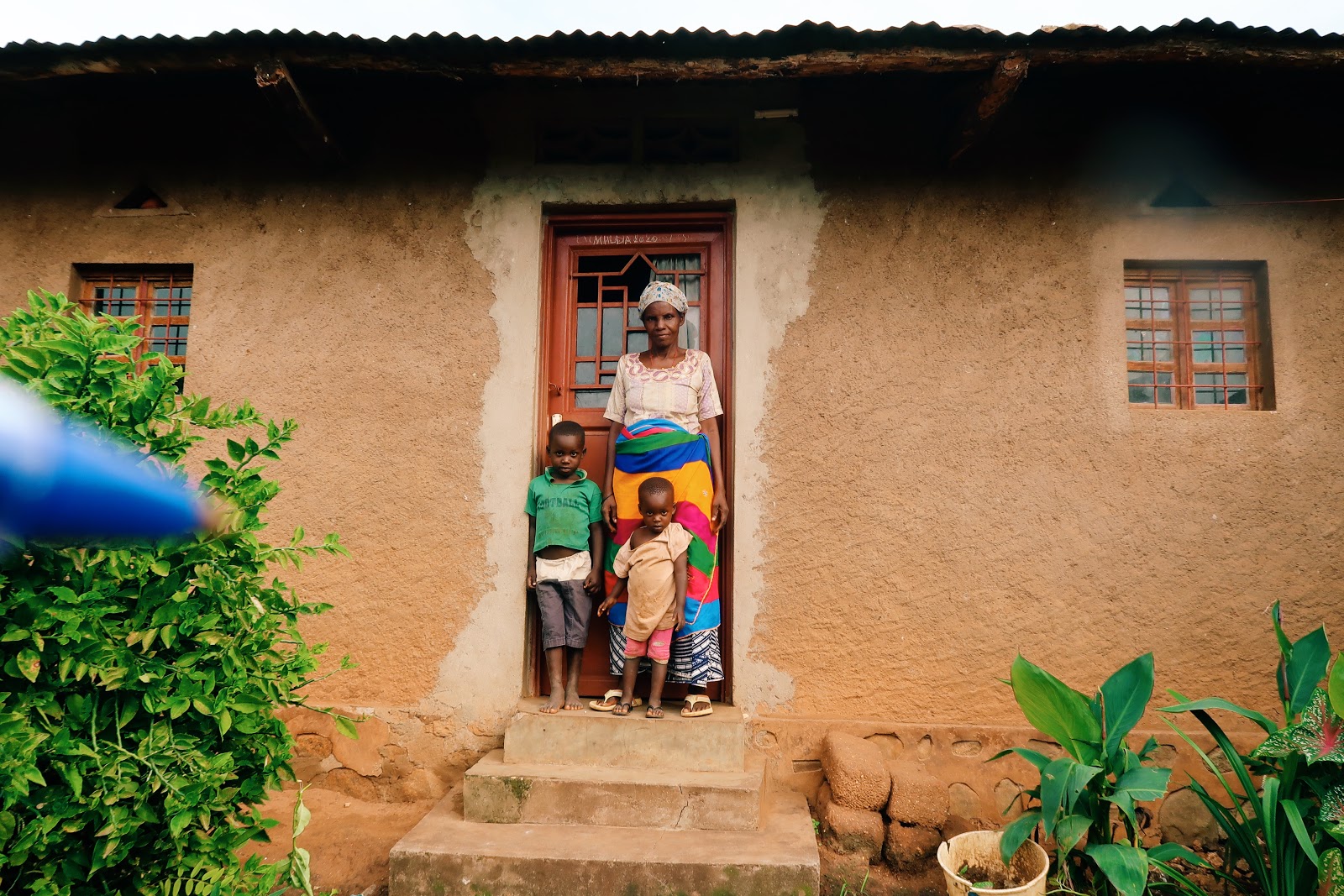
Environmental restoration cannot happen without empowering women
All throughout Plant With Purpose’s programs, we see that providing women with support, opportunities, and training pays off significantly. Research from UNESCO, the World Bank, and other institutions have outlined the multiplier effect when investing in women: the idea that educating and empowering women has an impact at a family and community level, not just an individual level. “Better-educated women tend to be healthier, participate more in the formal labor market, earn more, give birth to fewer children, marry at a later age, and provide better health care and education to their children,” explains the World Bank’s Jim Yong Kim.
The women of Plant With Purpose exemplify this multiplier effect. Two-thirds of program participants across all eight countries are women due to the nature of gender roles in agriculture and other factors. Like Yahaira and Petronie, most of these women are mothers. Each of these women contribute to the well-being of five to six people based on average family sizes.
We not only aim to have women represented in our program, but to also have them in leadership positions. From grandmothers to schoolgirls, women participate in leadership roles at a variety of levels. Some are presidents of their village savings groups. Some are program coordinators of a country-wide operation. Some lead their communities toward new ideas and habits by example and enthusiasm.
Within Plant With Purpose’s programs, women learn, practice, and teach regenerative agriculture and reforestation. Learning new sustainable practices is only the beginning. Many proceed to become leaders in Farmer Field Schools where they can spread the knowledge that has benefited them in peer-to-peer settings.
Plant With Purpose savings groups allow women to access financial resources that they would otherwise lack. Women are 1.5 times more likely to lack access to a bank compared to men, according to the organization SheCounts, and this disparity is larger in rural areas. In Plant With Purpose savings groups, women can save their money and access funds that allow them to invest in sustainable farming, school fees, small business, and income generating activities.
Women in savings groups also experience the social solidarity that comes from having a strong support network. This is one of the most important resilience factors against violence and despair. “Mutual support within our group revived hope in me and helped to heal the deeply etched soul scar of the loss of my seven children,” reflects Yahaira.
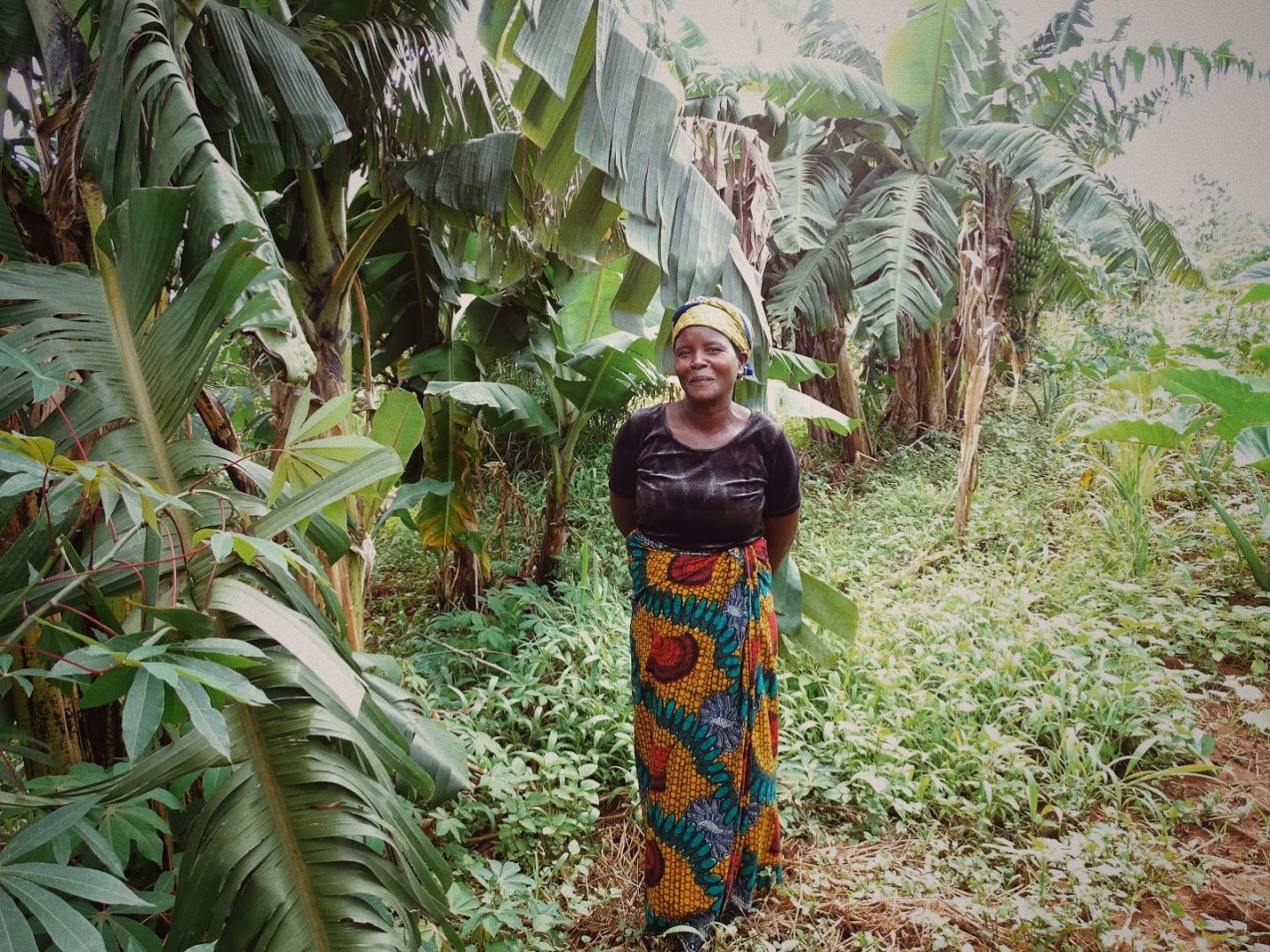
Harnessing the power of women can enhance our efforts against climate change
Research has shown that in areas where women make up the majority of farmers, regenerative agricultural practices are more common. The International Food Policy Research Institute (IFPRI) has found that in South Asia, higher rates of adoption of climate-sensitive livestock feeding practices have been implemented. Women who participate in these activities demonstrate a higher quantity of grain harvested and stored. Because men have greater access to commercial opportunities for their produce, women are more likely to be early adopters of climate-friendly farming practices like composting to save money while increasing crop yields.
“It’s really important to emphasize that women aren’t merely helpless victims when it comes to climate change,” Mayesha Alam, an expert on climate and women’s rights at Yale University, stated to Global Citizen. “Their participation and leadership can have transformative effects in their countries and communities.”
Even though women are more vulnerable to the effects of climate change than men, women are displaying resilience and strength worldwide. Women are spearheading climate action movements and championing new methods for their communities that prioritize sustainability and renewable energy sources.
We thank the world’s women for their traditional and environmental knowledge gathered over the years while building up their communities—fueling sustainable development and progress.
Ultimately, we have seen firsthand how women’s influence changes as they partner with Plant With Purpose. Partnering women are more likely to have diversified income sources. Families in partnering communities are 55% more likely to send their daughters to school, empowering the next generation of women.
Petronie is now a champion of reforestation. She and her family have planted over 2,000 plants, including numerous income-generating citrus trees. She uses regenerative farming innovations that are helping to heal the soil, like silvopasture, crop rotation, and biointensive agriculture.
Yahaira now recognizes that she is, “a woman of standing in the community.” She tells us, “I plan to apply the techniques I have learned to generate more income through agriculture. I am thankful for those who chose to work with me as a woman who had lost all hope but who now rejoices in life!”
Empowering women globally is essential to managing climate change and creating a sustainable future for our Earth.
To make a donation that empowers female farmers, just follow this link.

